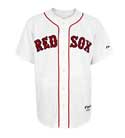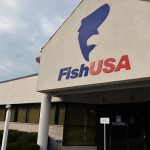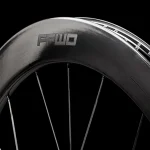Shares of Callaway Golf Co. got a bump Friday after an analyst speculated that the Carlsbad-based company will soon outsource its money-losing golf ball operation or shut the factory down completely.
Callaway started selling golf balls in 2000 but, despite growth in sales, has yet to make money on the operation because its factory in Carlsbad is not running at full capacity. Callaway executives, meantime, have pledged to eliminate losses from the ball operation by 2004.
Those comments have lead to speculation that the company would do one of three things: buy the golf assets of Spalding Sports Worldwide Inc. to beef up volume at its plant, close the plant and make balls through a third party, or exit the ball business completely.
The recent analyst’s report, which cites industry sources other than manufacturers, said efforts by Callaway to purchase Spalding’s ball business have not materialized. Instead, it says Callaway rival TaylorMade Golf, a unit of Adidas-Salomon AG, is close to buying the golf club and ball assets from Spalding owner Oaktree Capital Management.
“With this opportunity out of reach and moves to contract manufacture balls for other competitors to date unfruitful, we believe (Callaway) will likely move within the next three to four weeks to outsource its ball manufacturing or exit the category altogether,” wrote Tim Conder, an equity analyst for A.G. Edwards & Sons Inc. who wrote the report and doesnt own Callaway stock. Conder also upgraded the stock to “buy” from “hold” with a price target of $16.50.
Shares of Callaway closed at $12.60 yesterday, up 52 cents or 4.3 percent.
Officials from Callaway and TaylorMade declined comment. Officials from Oaktree Capital Management were said to be traveling yesterday.
Casey Alexander, an equity analyst who covers Callaway for Gilford Securities, said he thinks Conder’s report is credible and that he is also expecting an announcement about the golf ball operation soon. “The only thing that can be holding the company up would be the negotiations to outsource production to a third party,” he said.
Callaway’s golf ball operation has long been considered a looming cloud.
Analysts estimate the company has spent $170 million between building the Carlsbad ball factory and continued operating losses. The ball business has lost about $90 million since Callaway entered the fray in 2000.
Still, the company generated $55 million in revenue from balls in 2002, and has been well received by both golfers and retailers. “We do well with them, and from what I understand they do well along the West Coast,” said Rowdy Banks, store manager of The Golf Mart in Mission Valley.
The success has led to much speculation that Callaway is more likely to outsource its manufacturing operation than to walk away from the ball business, which would acknowledge failure and leave significant market share for competitors such as TaylorMade and Nike Inc.
















